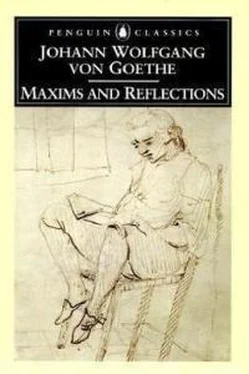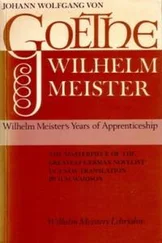377
The most important matters of feeling as of reason, of experience as of reflection, should be treated of only by word of mouth. The spoken word at once dies if it is not kept alive by some other word following on it and suited to the hearer. Observe what happens in social converse. If the word is not dead when it reaches the hearer, he murders it at once by a contradiction, a stipulation, a condition, a digression, an interruption, and all the thousand tricks of conversation. With the written word the case is still worse. No one cares to read anything to which he is not already to some extent accustomed: he demands the known and the familiar under an altered form. Still the written word has this advantage, that it lasts and can await the time when it is allowed to take effect.
378
Both what is reasonable and what is unreasonable have to undergo the like contradiction.
379
Dialectic is the culture of the spirit of contradiction, which is given to man that he may learn to perceive the differences between things.
380
With those who are really of like disposition with himself a man cannot long be at variance; he will always come to an agreement again. With those who are really of adverse disposition, he may in vain try to preserve harmony; he will always come to a separation again.
381
Opponents fancy they refute us when they repeat their own opinion and pay no attention to ours.
382
People who contradict and dispute should now and then remember that not every mode of speech is intelligible to every one.
383
Every man hears only what he understands.
384
I am quite prepared to find that many a reader will disagree with me; but when he has a thing before him in black and white, he must let it stand. Another reader may perhaps take up the very same copy and agree with me.
385
The truest liberality is appreciation.
386
For the strenuous man the difficulty is to recognise the merits of elder contemporaries and not let himself be hindered by their defects.
387
Some men think about the defects of their friends, and there is nothing to be gained by it. I have always paid attention to the merits of my enemies, and found it an advantage.
388
There are many men who fancy they understand whatever they experience.
389
The public must be treated like women: they must be told absolutely nothing but what they like to hear.
390
Every age of man has a certain philosophy answering to it. The child comes out as a realist: he finds himself as convinced that pears and apples exist as that he himself exists. The youth in a storm of inner passion is forced to turn his gaze within, and feel in advance what he is going to be: he is changed into an idealist. But the man has every reason to become a sceptic: he does well to doubt whether the means he has chosen to his end are the right ones. Before and during action he has every reason for keeping his understanding mobile, that he may not afterwards have to grieve over a false choice. Yet when he grows old he will always confess himself a mystic: he sees that so much seems to depend on chance; that folly succeeds and wisdom fails; that good and evil fortune are brought unexpectedly to the same level; so it is and so it has been, and old age acquiesces in that which is and was and will be.
391
When a man grows old he must consciously remain at a certain stage.
392
It does not become an old man to run after the fashion, either in thought or in dress. But he must know where he is, and what the others are aiming at.
What is called fashion is the tradition of the moment. All tradition carries with it a certain necessity for people to put themselves on a level with it.
393
We have long been busy with the critique of reason. I should like to see a critique of common–sense. It would be a real benefit to mankind if we could convincingly prove to the ordinary intelligence how far it can go; and that is just as much as it fully requires for life on this earth.
394
The thinker makes a great mistake when he asks after cause and effect: they both together make up the indivisible phenomenon.
395
All practical men try to bring the world under their hands; all thinkers, under their heads. How far each succeeds, they may both see for themselves.
396
Shall we say that a man thinks only when he cannot think out that of which he is thinking?
397
What is invention or discovery? It is the conclusion of what we were looking for.
398
It is with history as with nature and with everything of any depth, it may be past, present, or future: the further we seriously pursue it, the more difficult are the problems that appear. The man who is not afraid of them, but attacks them bravely, has a feeling of higher culture and greater ease the further he progresses.
399
Every phenomenon is within our reach if we treat it as an inclined plane, which is of easy ascent, though the thick end of the wedge may be steep and inaccessible.
400
If a man would enter upon some course of knowledge, he must either be deceived or deceive himself, unless external necessity irresistibly determines him. Who would become a physician if, at one and the same time, he saw before him all the horrible sights that await him?
401
How many years must a man do nothing before he can at all know what is to be done and how to do it!
402
Duty: where a man loves what he commands himself to do.
403
When Madame Roland was on the scaffold, she asked for pen and paper, to note the peculiar thoughts that hovered about her on the last journey. It is a pity they were refused, for in a tranquil mind thoughts rise up at the close of life hitherto unthinkable; like blessed inward voices, alighting in glory on the summits of the past.
404
Literature is a fragment of fragments: the least of what happened and was spoken, has been written; and of the things that have been written, very few have been preserved.
405
And yet, with all the fragmentary nature of literature, we find thousand fold repetition; which shows how limited is man's mind and destiny.
406
Excellent work is unfathomable, approach it as you will.
407
It is not language in itself which is correct or forcible or elegant, but the mind that is embodied in it; and so it is not for a man to determine whether he will give his calculations or speeches or poems the desired qualities: the question is whether Nature has given him the intellectual and moral qualities which fit him for the work,—the intellectual power of observation and insight, the moral power of repelling the evil spirits that might hinder him from paying respect to truth.
408
The appeal to posterity springs from the pure, strong feeling of the existence of something imperishable; something that, even though it be not at once recognised, will in the end be gratified by finding the minority turn into a majority.
409
When a new literature succeeds, it obscures the effect of an earlier one, and its own effect predominates; so that it is well, from time to time, to look back. What is original in us is best preserved and quickened if we do not lose sight of those who have gone before us.
410
The most original authors of modern times are so, not because they produce what is new, but only because they are able to say things the like of which seem never to have been said before.
411
Thus the best sign of originality lies in taking up a subject and then developing it so fully as to make every one confess that he would hardly have found so much in it.
412
There are many thoughts that come only from general culture, like buds from green branches. When roses bloom, you see them blooming everywhere.
Читать дальше








![Иоганн Гёте - Итальянское путешествие [litres]](/books/398657/iogann-gete-italyanskoe-puteshestvie-litres-thumb.webp)



